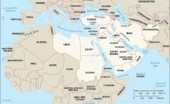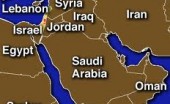Johannah Bernstein post: "eternally proud of my father’s extraordinary aeronautical engineering. legacy. here is a photo of the Canadair Water…
Wednesday Night #1198
Written by Diana Thebaud Nicholson // February 16, 2005 // Arts and culture, Canada, Climate Change, Herb Bercovitz, Montreal, Reports // Comments Off on Wednesday Night #1198

See also #1198 on Wednesday-Night.com
The Kyoto Protocol on Climate Change has kicked in, Canada has no plan and the U.S. (the world’s biggest source of industrial toxins) has not signed. Implementation is compulsory for participating countries, but there are no penalties for non-compliance. Germany is well ahead of the rest of the world in cutting emissions. Experts have made claims that even with total compliance, the world will gain only about ten years before it is back to the current situation, while others believe that global warning may have saved the world from the danger of a second ice age. Canada’s private sector has expressed worry that private business will suffer from American competitors, because the U.S. hasn’t ratified Kyoto. For their part, environmentalists have criticized the government for having failed to force car makers to manufacture models that use less gasoline.
In the face of all the doubts, Paul Martin announced today (Wednesday) that Montreal will host an international follow-up conference on Climate Change in December [More accurately, the Conference of the Parties to the Convention on Climate Chane]. Environment Minister, Stéphane Dion, says Canada’s blueprint for the implementation of Kyoto will be available within a period of days or weeks and we can expect some of the figures outlining federal spending to implement the accord in next week’s federal budget.
Security at Hydro Québec
The recent breach of security in two Hydro Québec installations by reporters is but one of many such incidents over the years with the public being critical of the utility, both when security appears too tight, or too loose. At one point some Hydro Québec security guards carried guns and Hydro Québec had its own prison, then considered scandalously over-secure and potentially dangerous. Shortly following the twin tower bombing, three people were stopped by Québec Provincial Police officer as they approached power line pylons in northern Québec. One of the three was wanted by the U.S. (possibly as a potential terrorist). The fact is that with the length of the transmission lines, security is a major issue and a balance must be struck between security and overreaction.
[Editor’s note: The political fallout from the current Hydro incident has extended to the unceremonious dumping of two provincial Cabinet ministers, Sam Hadad, responsible for Natural Resources and Jacques Chagnon, for Public Security. The Premier has ordered the Sureté du Québec to conduct an independent evaluation of Hydro’s security measures and needs. Second, he demanded Hydro secure its strategic sites, increase its electronic and manned security, invest the necessary resources and make sure better measures will remain in the long term. Finally, he ordered Hydro’s CEO to report daily to both ministers responsible.]
Quartier Concordia
As Montrealers become increasingly aware of the expansion of the downtown campus of Concordia University, they frequently are unaware of the philosophical and physical challenges faced by the planners in its transformation. Concordia University, created in 1974, was a hybrid, its two components, Loyola College and Sir George Williams University, very different in mission as well as architecture. Sir George Williams University grew out of Sir George Williams College which had originally been housed in the YMCA on Drummond Street and offered evening courses leading to a degree granted through McGill University. The student body was largely adult, seeking a second chance at a university education. Loyola College was a Jesuit institution with a spacious campus and architecturally integrated buildings, providing an excellent environment for teaching and learning.
Following integration, the downtown campus consisted of the Hall building and a series of disparate, haphazardly acquired small buildings. At the instigation of a number of visionaries, notably Jonathan Weiner, Head of Concordia’s real estate planning committee and who has spearheaded a vision for Sir George placing the campus as an integrated entity in the Western downtown core, with an urban identity. A long-term plan was created by Cardinal Hardy to balance the need for vertical integration with space conducive to its teaching mission and for student exchange. Five core priorities were identified, namely the priorities of public space, lighting, signage, circulation and civic infrastructure. The subsequent acquisition of the Grey Nuns property will double the size of the downtown campus, providing the students with amenities and green space expected in a traditional university, while integrating into its urban surroundings.
It was asked whether there is any thought of providing a place like an agora for students to gather to exchange ideas, and get used to participating in civil debate. Older Wednesday Nighters suggested that, based on their experience in the ’60s, students generally organize this sort of tradition for themselves.
[Editor’s note: according to media reports, there is much thought being given to areas where students can “hang out”]
I am tired of political correctness in universities instead of educating our kids and leading them into careers. …Concordia has introduced a vast Women’s Studies program. We have lost the Geology degree and the entire area of education and technology (to the principle of political correctness)
At another level, the conversation turned to the role of universities in developing leadership rather than churning out “people (like accountants and computer programmers) who make money. This topic will no doubt be debated for many Wednesdays to come.
Iraq, Afghanistan, Palestine and Israel
The sanctity of the borders of sovereign countries has been a principle of modern nations. We as Canadians, therefore, were generally pleased by our country’s decision to resist the pressure to invade Iraq. Daily news accounts continue to bring us stories of violence and disorder. We tend to overlook the other side of the situation, namely the successful elections in Afghanistan and Iraq. In Iraq, especially, the dominant Shia group did not obtain an overall majority and so will have to form a coalition government with the Kurds. The Sunni, because they largely did not vote, will have to become involved in the process if they wish to have any influence on government – and the writing of the Constitution. Success does not make good news stories and the daily life and renewed hope in Iraq goes largely unreported. In the opinion of some who have traveled widely in the Middle East and have seen the wars at first hand, even with the current rise in insurgency in Iraq and the assassination of the former Prime Minister of Lebanon, Rafik Hariri, there is cause to believe that we are at a major crossroads and there is reason to hope. Of course, there will have to be a military presence for some time and the education system must be reformed in order to stop the teaching of hate, intolerance and violence and to build the infrastructure that can ensure peace and order. This is a job for the United Nations, not under a U.S. military commander.
The renewed efforts at peace between Israel and the Palestinians may just be a spin-off of the successes in Iraq and Afghanistan. However, we will not know the long-term results for perhaps a decade.
Canada appears to be positioning itself to intervene on the international scene as happened in the Pearson era.
Is assassination a solution?
Is invasion the only way of getting rid of a dictator? Would targeted assassination do as well? Certainly, if successful, it would be far less disruptive and expensive than invasion. The assassination of Ciacescu did open the way for democracy in Romania, but this is not the norm. Living with threats of assassination is a daily occupational hazard for dictators and those that have survived have been successful at acquiring the skills necessary to prevent their opponents from seizing power. But, more important, eliminating the dictator and the hierarchy does not a regime-change make. Often, the country is simply exchanging one horror for another. This would have been the problem with eliminating Saddam – who would have moved into the breach, and with what support? The key to success in the Middle East will be education, presenting alternatives to the madras, schools which systematically preach hatred.
Law Commission of Canada
The Law Commission of Canada is an independent federal law reform agency, created seven years ago that advises Parliament on how to improve and modernize Canada’s laws. The Commission’s work is structured around four complementary themes, namely, Personal Relationships, Social Relationships, Economic Relationships, Governance Relationships, What is a Crime?
To address the issue of distortion between the numbers in popular vote and the representation of the political parties in our legislatures, and to dispel the cynicism with which many regard the political process, the Commission is recommending a modified proportional representation system similar to that in Scotland and New Zealand, in which two-thirds of members would be elected directly and one-third from a list of candidates. This would overcome the instability evident in countries that have instituted full proportional representation while ensuring a voice to smaller parties who enjoy some public support. In the current government the Liberal Party won sixty percent of the seats with forty percent of the votes, partly due to disparity in constituency size, but also due to the current electoral system. The proposal predictably received mixed support from Wednesday Nighters with some expressing concern that under this system there would be no clear-cut leadership; discussion almost certain to continue.
************************
The Prologue
While we mark the entry into force of the Kyoto Protocol this Wednesday, we are also very pleased to have with us Clarence Epstein, Ph.D. who is Director, Special Projects in the Office of Concordia’s President and Vice-Chancellor. Clarence rejoins Wednesday Night after too long an absence and will explain the project that has kept him away from us: the university’s Master Plan.
Peggy Curran wrote recently in the Gazette: “McGill University is looking for a makeover. Montreal’s answer to the Ivy League is peering deep into the future and imagining possibilities – like the creation of satellite campuses and a revamped downtown site where cars are banished, cyclists reign and pedestrians are shielded from cruel midwinter winds. … McGill isn’t the only school that has been feeling squeezed. In May, Concordia University acquired the Grey Nuns motherhouse, while the Université de Montreal and the Université du Québec a Montréal have either opened or extended campuses in Laval, Longueuil and Lachenaie.”
In April 2002, – long before Concordia acquired the Motherhouse -, the announcement from the Québec government of a $97 million grant to go toward the new Integrated Engineering, Computer Science and Visual Arts Complex on the Sir George Williams Campus kicked off the implementation of the university’s Master Plan for facilities at both the downtown (“Quartier Concordia”) and Loyola campuses. The first phase involves development of the west side of the Loyola Campus, the first part of the new Integrated Engineering, Computer Science and Visual Arts Building, the construction of a new John Molson School of Business building, the renovation of the Hall, McConnell and Drummond Sciences buildings, and a new Loyola Athletics Complex. NOT a minor undertaking! And it will have an important physical and visual impact on both neighborhoods, but particularly the Guy/Sherbrooke/Bishop/St Catherine quadrant.



